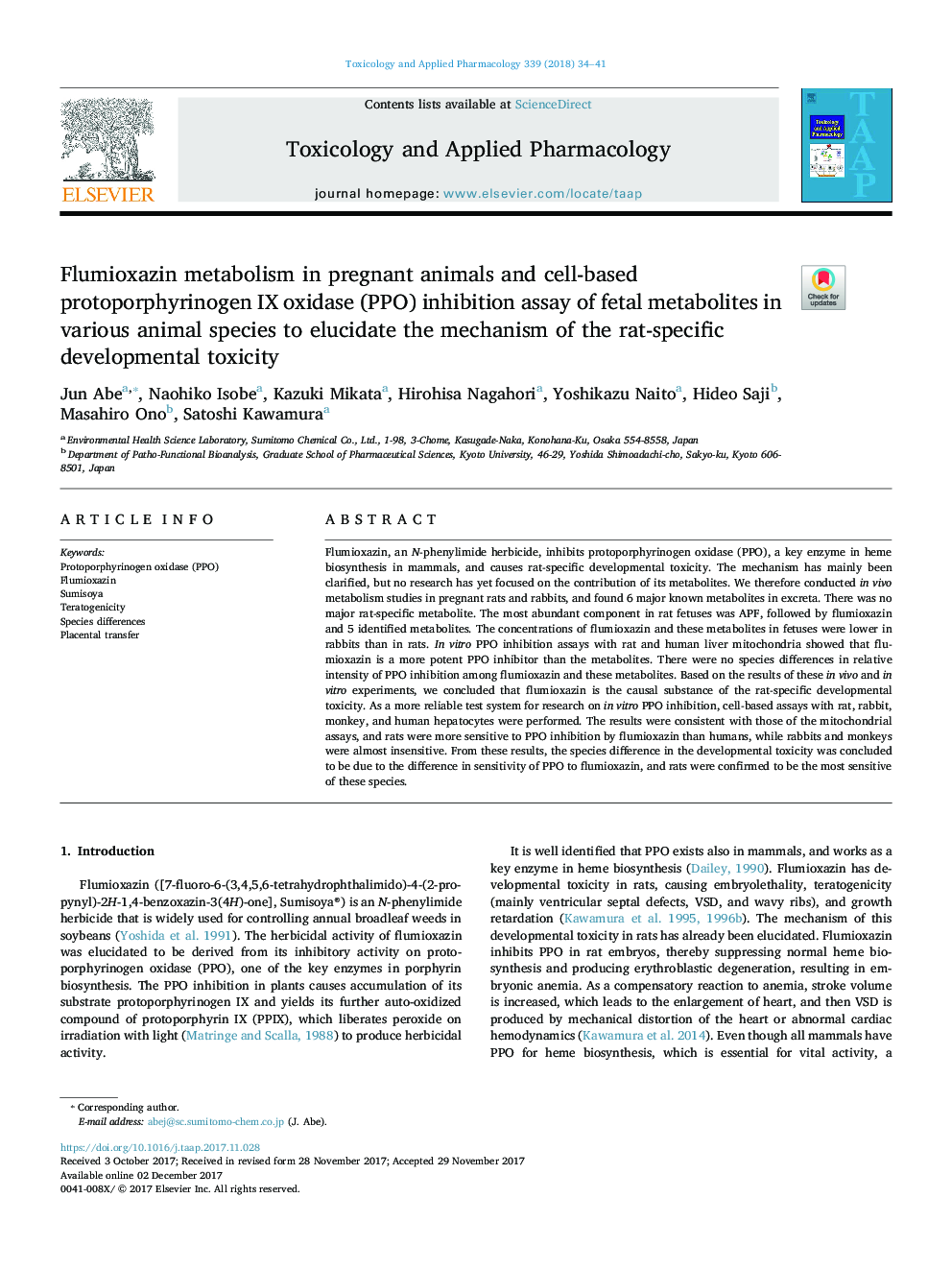| Article ID | Journal | Published Year | Pages | File Type |
|---|---|---|---|---|
| 8538917 | Toxicology and Applied Pharmacology | 2018 | 8 Pages |
Abstract
Flumioxazin, an N-phenylimide herbicide, inhibits protoporphyrinogen oxidase (PPO), a key enzyme in heme biosynthesis in mammals, and causes rat-specific developmental toxicity. The mechanism has mainly been clarified, but no research has yet focused on the contribution of its metabolites. We therefore conducted in vivo metabolism studies in pregnant rats and rabbits, and found 6 major known metabolites in excreta. There was no major rat-specific metabolite. The most abundant component in rat fetuses was APF, followed by flumioxazin and 5 identified metabolites. The concentrations of flumioxazin and these metabolites in fetuses were lower in rabbits than in rats. In vitro PPO inhibition assays with rat and human liver mitochondria showed that flumioxazin is a more potent PPO inhibitor than the metabolites. There were no species differences in relative intensity of PPO inhibition among flumioxazin and these metabolites. Based on the results of these in vivo and in vitro experiments, we concluded that flumioxazin is the causal substance of the rat-specific developmental toxicity. As a more reliable test system for research on in vitro PPO inhibition, cell-based assays with rat, rabbit, monkey, and human hepatocytes were performed. The results were consistent with those of the mitochondrial assays, and rats were more sensitive to PPO inhibition by flumioxazin than humans, while rabbits and monkeys were almost insensitive. From these results, the species difference in the developmental toxicity was concluded to be due to the difference in sensitivity of PPO to flumioxazin, and rats were confirmed to be the most sensitive of these species.
Related Topics
Life Sciences
Environmental Science
Health, Toxicology and Mutagenesis
Authors
Jun Abe, Naohiko Isobe, Kazuki Mikata, Hirohisa Nagahori, Yoshikazu Naito, Hideo Saji, Masahiro Ono, Satoshi Kawamura,
